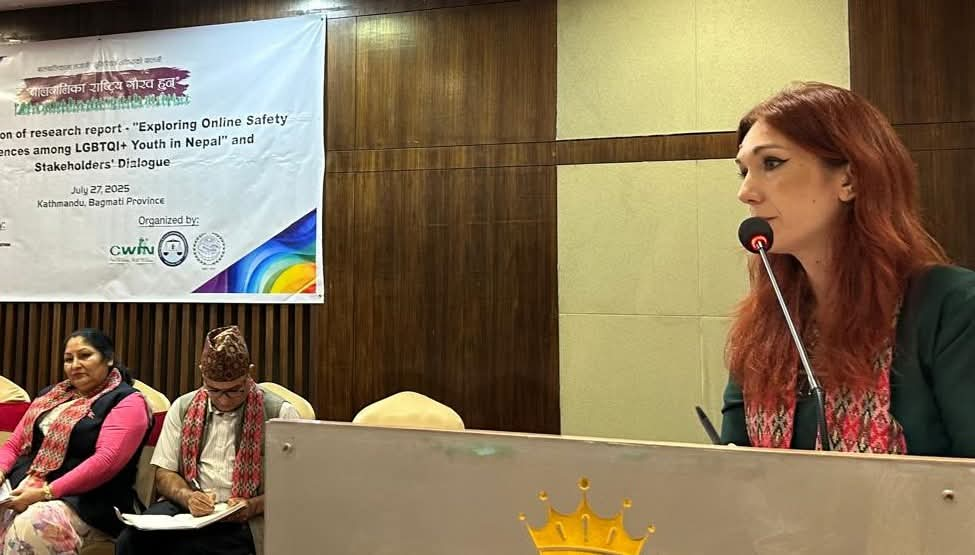Kathmandu, July 28, 2025 - A groundbreaking report titled "Exploring Online Safety Experiences among LGBTQIA+ Youth of Nepal" has been officially launched, casting a critical spotlight on the unsafe digital realities and systemic challenges faced by LGBTQIA+ young people in Nepal.
The report was unveiled in a collaborative event by key national and international stakeholders, including Indra Devi Dhakal, Member Secretary of the National Child Rights Council (NCRC); Khilnath Dhamala from the Curriculum Development Centre; youth representative Mouni Maharjan; Dr. Thangaperumal Ponpandi, Country Director for India and Nepal at Terre des Hommes Netherlands (TDH Netherlands); and Zoe De Melo, Programme Manager for Online Child Sexual Exploitation (OCSE) under TDH Netherlands' SEC Thematic Program.
Key Findings Highlight Critical Online Threats
Based on in-depth research involving 100 LGBTQIA+ youths from across the country, the report outlines a distressing picture of their online experiences:
89% of respondents reported facing verbal harassment.
69% encountered unwanted sexting.
59% experienced non-consensual sharing of private information.
A startling 82% did not report the abuse they suffered.
More than 57% of participants shared that they do not feel safe expressing their gender identity online.
The findings point to a dire lack of digital safety for marginalized youth and underline an urgent need for responsive policies and awareness campaigns.
Digital Dependency and Privacy Concerns
On average, LGBTQIA+ youth in the study spend 6.75 hours daily on digital media, with 96% using Facebook for education and community interaction. However, fears around privacy breaches, misuse of identity, and targeted discrimination continue to silence many from authentically expressing themselves online.
Despite the connectivity benefits of digital platforms, the report warns of a growing emotional toll and calls for healthier digital habits, privacy safeguards, and inclusive tech policies.
A Collaborative Effort for Change
The report launch was organized jointly by CWIN-Nepal, CeLLRd, and WYESHR, with support from TDH Netherlands. The event saw the participation of youth activists, civil society members, law enforcement officials from the Nepal Police Cyber Bureau, representatives from the Curriculum Development Center, and members of the National Child Rights Council.
Speaking at the event, stakeholders emphasized the need for an inclusive digital space where all young people, regardless of their gender identity or sexual orientation, can safely express themselves, learn, and engage.
The report serves as a crucial evidence base to advocate for digital literacy, legal protection, and community-led responses to tackle online abuse and discrimination in Nepal.
Ecosphere News will continue to highlight stories that amplify the voices of marginalized communities and push for inclusive development across all sectors of society.